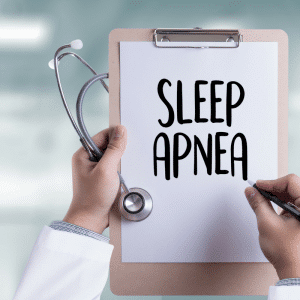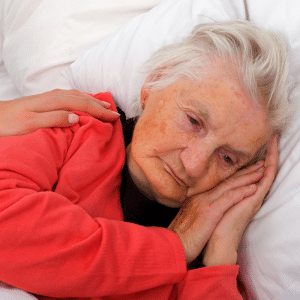Do Aging Adults Need More Sleep?
Many people think that aging adults need less sleep than the average adult. Research suggests that this is not the case, however & that aging adults actually need as much as sleep as young adults do. 7-9 hours of sleep is necessary for most people over the age of 20.
In general, aging adults tend to become sleepier earlier in the evening because their sleep structure has changed. They still need the same amount of sleep, just tend to get sleepier earlier in the evening and wake much earlier in the morning hours. If there were no other problems with their sleep schedules, this would not be a serious concern. They could wake fully refreshed after 7-9 hours of sleep, just waking earlier than some of their counter-parts & retiring earlier, as well. The problems arise when there are things that interfere with those 7-9 hours of sleep.
A myriad of disturbances can affect the way we sleep. As we age, more of those concerns tend to be health related. Some of the most common are:

Irregular heart rate. If the pulse is irregular in a sleeping person, sleep will be interrupted for the same reason as above because blood oxygen levels will be lower, causing the person to startle awake on a very regular basis throughout the night. They might sleep for a number of hours, but be awakened several times throughout a minute, thus not getting adequate rest. A doctor needs to be consulted if either sleep apnea or heart issues are suspected.
Restless Leg Syndrome: This ailment affects a number of aging individuals and can cause sleep disturbances for a long period of time. It is difficult to sleep if your legs feel numb or tingling or move of their own accord throughout the night.
Gastro-Intestinal complaints: These can disturb sleep patterns in young & old alike, but are more common in aging populations. Finding the root cause of these is an important step in getting better sleep.
Insomnia: Whether because of difficulty going to sleep, anxiety, or caused by drug interactions from pharmacuetical drugs, insomina is no laughing matter. Lack of sleep can have the same side-effects as heavy drinking or drug use & cause major problems for your daily life. Work with your doctor to find the cause & treat it effectively.
There are a few things that you can do at home to see if they work for you before heading to the doctor.
-
Go to bed at the same time each night & wake at the same time each morning. See if your schedule is just extremely erratic & whether it could be affecting your sleep. It does not take too long for your body to find its rhythm again if it is allowed to.
-
Keep the room where you're sleeping cool & throw on a light blanket to stay warm.
-
Turn off electronics at least one hour before bed. Read a book, listen to music or have a conversation before bed instead of watching TV or playing on a computer or phone. Also, keep electronics and devices out of your bedroom.
-
Practice a relaxing night-time routine, whether it be a relaxing shower, gentle stretching exercises or reading, these things will begin to trigger bed-time to your brain.
-
Axe the caffeine. If you are not ready or willing to cut it out altogether, simply cutting it out of your afternoons can improve sleep quality. Replace it with a non-caffeinated beverage that you enjoy equally as much in order to ensure success.
Try keeping a record of the changes that you've made for a solid week or two. Write down the results. Bring this record with you to your doctor in order to open the discussion about your sleep. If they see that you are willing to make lifestyle choices that are healthy in order to combat your lack of sleep, they'll be more motivated to help you find a solution. Ultimately, you will need to be your own advocate in this realm. If you need more rest & are not getting it, talk to your physician or another specialist. Much of it is based on feeling & a physician cannot tell how you feel or whether you are well rested just from a cursory look at you. You will need to communicate the problems, communicate what you've tried to do to solve them & let them know that you are willing to make changes to see sleep success! And, if you've already forgotten what it is like to feel rested when you wake, let me assure you, it feels GREAT! It's a worthy goal to work toward!
